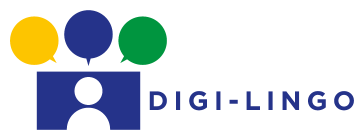22.09.2023
We are thrilled to present our latest publications stemming from the ongoing DIGI-LINGO project. These new publications delve into a comprehensive analysis of the project's findings, offering valuable insights and recommendations related to foreign language teaching, digital tools, and the international dimension in education.
In the first phase of the DIGI-LINGO project (PR1), our primary objective was to establish a theoretical framework for comprehensive language teaching and identify factors influencing successful foreign language instruction, with a focus on the international dimension and digital tools.
Read Analytical framework and identification of best practices.
The second objective involved data collection from teachers and students using a questionnaire based on our theoretical framework, covering the Pluriliteracies Teaching for Deeper Learning model factors, international dimension, and digital tools' impact. For a deeper understanding of our methodology, we invite you to read about methodology and questionnaire.
Lastly, we interpreted the results to identify best practices and areas for improvement. Our approach combined quantitative analysis for percentages, means, medians, and statistical tests and qualitative analysis to address our primary research question. The findings and recommendations are categorized into the Pluriliteracies Teaching for Deeper Learning model dimensions, digital tools in foreign language teaching, and differences in teachers' and students' perspectives. This approach provides specific recommendations for each country. Discover the results and recommendations based on questionnaires.
